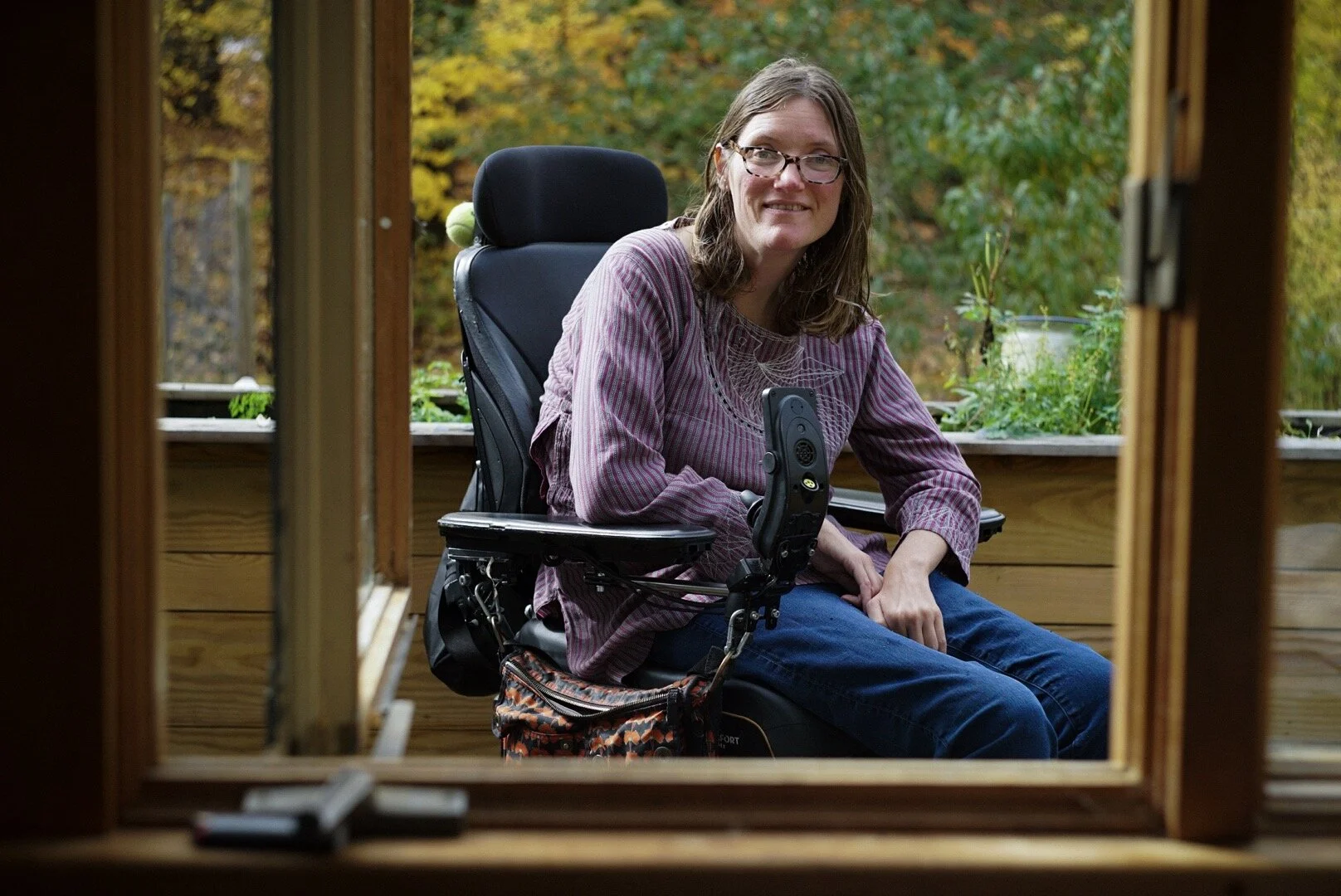Production in a Pandemic
"We at Hand in Hand could not be more grateful for our collaboration with Chase on ‘Calling for Home Care.’ As an advocacy organization working to raise wages for home care workers, we use this PSA on a daily basis in lobby visits and community presentations. It has brought several legislators to tears. As of September 30th, our Fair Pay for Home Care legislation has 90 co-sponsors in the state legislature. It is in no small part due to the tremendous impact Chase's film has on decision-makers who see the film."
Julia Solow, Lead NY Caring Majority Organizer
How we turned obstacles into ornaments for a PSA about the home care crisis during COVID-19
Julia and I had been friends for a while, but it was unexpected that we would become like family while experiencing the first confusing wave of COVID-19 lockdown together. Three of us shared a friend’s one bedroom house as we, like everyone else, navigated the uncharted waters of a global pandemic.
”Obviously,” I said sitting across the kitchen table from her, “we have to cancel our plans to make a PSA for New York Caring Majority. We can’t ethically go into homes of some of the highest risk folks for this.”
Julia is a lead organizer for Hand in Hand, an organization working on a campaign called New York Caring Majority which is fighting for the rights of home care workers and the elderly and disabled folks who need their aid. We had been working together to brainstorm a creative public service announcement that could grab attention for an important petition, but the spread of novel coronavirus had put a huge roadblock in our way.
Julia Solow talks to local news outside a nursing home after a massive outbreak.
The topic of home care is close to my heart. Several times in my life, I have found myself in the position of being a home care worker, and in fact I am currently a home care worker for my friend Sage. Sage was diagnosed with multiple sclerosis young and is suffering its effects acutely. Her loving partner Mark gives most of the daily support Sage needs for basic household living, in addition to her parents who live nearby and her best friend who lives next door. Even with all of this familial support, Sage needs to hire part time help for things like regular trips to Albany Med for physical and occupational therapies, as well as the long list of appointments that a horrendous disease like MS mandates.
It’s impossible to work in home care and not notice the horrifying shortcomings of the systems in place to support this “industry.” The overwhelming majority of care workers live paycheck to paycheck, working unbearably long shifts during difficult time windows for minimum wage or less. They receive no affordable benefits. For many disabled and elderly folks there is a high turnover of workers, which becomes exhausting. Imagine a new stranger coming into your home every few weeks or months, to whom you have to teach all of the most intimate functions of your personal life. Imagine now that this person isn’t receiving nearly the pay that their labor is worth, and there is nothing you can do about it. Imagine the social dynamics such a situation creates, and imagine trying to maintain a sense of dignity and agency in having your most basic needs met. In order to protect the dignity of elderly and disabled folks, we must honor the dignity of their care workers. We must change the policies that are in place. We must pay attention and speak up. These are the reasons I wanted to create a PSA with Julia for New York Caring Majority.
Sage at her home in Rosendale, NY
As we settled more deeply into an indefinite lockdown, I noticed that the peculiarities of social distancing were becoming cultural norms. This time would always be remembered by its awkward and frightful learning curve of masks and zoom calls, hand sanitizer and six foot orbs of personal boundaries. It occurred to me that social distancing didn’t have to be an obstacle to making a PSA about home care, but could be used to show the world exactly what home care workers are up against.
I approached Julia with the idea to maintain and include social distancing in our project together, instead of letting it delay our production. The sound of a voice on the phone has become ubiquitous with social connection. Having panes of glass between us has become the norm. So what if we used cell phones as microphones and filmed folks with their care workers through the safe boundary of their closed windows? We agreed this could be a perfect way to show an audience what was going on in a way that doesn’t need a whole lot of explanation.
I think the PSA speaks for itself. This project would not have been possible without Julia’s incredible relationships with the leaders who agreed to take part in this project, and without the bravery and openness with which these folks chose to share their stories and perspectives. I have been honored to be part of it and feel grateful for the opportunity to do exactly what calls me for work.


